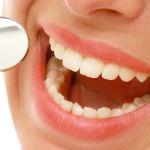Understanding the Importance of Oral Health for Seniors
As a caregiver for an elderly family member, one of the most important responsibilities I’ve taken on is maintaining their oral health. Oral care is often overlooked in older adults, but it is just as crucial as other aspects of healthcare. Many seniors face unique dental challenges that can lead to discomfort, tooth loss, or even more serious health complications. That’s why I’ve made it my mission to ensure that my loved ones receive the proper care they need to maintain healthy teeth and gums.
The Connection Between Oral Health and Overall Health in Seniors
Oral health isn’t just about having a bright smile—it’s deeply connected to overall well-being, especially in seniors. Poor oral hygiene can lead to a variety of problems, from gum disease to tooth decay, and even systemic health issues like heart disease and diabetes. In fact, studies show that untreated dental problems in seniors can contribute to other chronic conditions, making it even more important to prioritize dental care.
One of the biggest challenges I’ve encountered in taking care of a senior’s oral health is understanding how it affects their entire body. For example, gum disease has been linked to increased risks of stroke and heart disease. When bacteria from the mouth enters the bloodstream, it can travel to other areas of the body and cause inflammation. This is something I’ve always kept in mind when planning oral hygiene routines for my elderly loved ones.
Challenges Caregivers Face in Maintaining Oral Health for Seniors
As I became more involved in caregiving, I quickly realized the challenges of maintaining proper oral health for seniors. Here are some of the common issues I’ve faced and how to overcome them:
- Physical Limitations: Many seniors struggle with limited mobility or dexterity, which makes brushing and flossing difficult. In such cases, I’ve found that using electric toothbrushes or special ergonomic tools designed for seniors can make a significant difference.
- Medication Side Effects: Seniors often take medications that can lead to dry mouth, which increases the risk of cavities and gum disease. Keeping track of medications and consulting with a dentist to address these side effects can help prevent complications.
- Forgetfulness: Cognitive decline in seniors can lead to forgetfulness, including forgetting to brush or maintain oral hygiene. Setting up a routine and providing gentle reminders can help ensure that brushing and flossing are not neglected.
How Caregivers Can Promote Better Oral Health for Seniors
Maintaining proper oral hygiene for seniors doesn’t have to be overwhelming. With the right tools and strategies, caregivers can make oral health a priority. Here are some of the ways I’ve been able to support the oral health of my senior loved ones:
1. Establishing a Daily Oral Hygiene Routine
The foundation of good oral health is consistency. I’ve found that establishing a daily routine—brushing teeth at the same time every morning and night—helps make dental care a habit. For seniors, this routine should include:
- Brushing Twice a Day: Use a soft-bristled toothbrush and fluoride toothpaste. Brush gently to avoid damaging gums.
- Flossing Once a Day: Flossing removes plaque and food particles from between the teeth, where a toothbrush can’t reach.
- Using Mouthwash: Mouthwash can help reduce plaque and gum disease, and it’s an excellent addition to the daily routine.
2. Regular Dental Checkups
Even with the best oral hygiene routine, regular visits to the dentist are crucial. Seniors should visit the dentist every six months—or more frequently if recommended by their healthcare provider. During these checkups, the dentist can spot potential issues before they become serious problems. I’ve always made sure to schedule these appointments and ensure transportation is available for my elderly family members.
3. Managing Diet and Hydration
Diet plays a significant role in oral health, especially for seniors. A balanced diet with plenty of vitamins and minerals—especially calcium and vitamin D—helps maintain strong teeth and gums. I’ve noticed that cutting back on sugary snacks and drinks, which can lead to tooth decay, helps improve overall oral health. Additionally, staying hydrated is important to combat dry mouth, which is common among older adults. Drinking plenty of water throughout the day helps keep the mouth moist and promotes saliva production.
4. Providing Gentle Reminders
For seniors with cognitive decline, remembering to brush their teeth can be difficult. In these cases, I’ve found that setting up reminders—whether through a phone alarm or a note by the bathroom sink—can help them remember. Another option is to gently assist them with brushing if they need help. If they are unable to do so themselves, consider using special dental tools, like long-handled brushes or mouth wipes, to make the process easier.
5. Dealing with Dentures
Many seniors wear dentures, and it’s essential to care for them just as carefully as natural teeth. I’ve made it a point to clean dentures every day and soak them overnight to keep them free from bacteria. It’s also important to ensure that the dentures fit properly, as ill-fitting dentures can lead to discomfort, gum irritation, or difficulty eating. Regular visits to the dentist will help maintain the proper fit of dentures.
Creating a Comfortable Environment for Oral Care
As a caregiver, I’ve found that one of the most important aspects of maintaining oral health for seniors is creating a comfortable and positive environment around oral hygiene. For some seniors, the thought of brushing their teeth can feel like a daunting task, especially if they’ve experienced discomfort or difficulty in the past. That’s why I try to make the process as relaxed and comfortable as possible. I often play calming music, create a routine that feels predictable, and make sure to provide plenty of reassurance along the way.
The Importance of Patience and Empathy
Caregiving requires patience, and when it comes to oral health, this couldn’t be more true. Seniors may be reluctant to participate in oral hygiene routines, especially if they have cognitive or physical challenges. It’s important to approach them with empathy and understanding, always keeping in mind that this is a gradual process. I’ve found that being gentle, offering praise for their efforts, and showing understanding can help ease any anxiety or resistance to dental care.
Conclusion: A Caregiver’s Impact on Senior Oral Health
The role of a caregiver in maintaining a senior’s oral health cannot be overstated. By helping seniors maintain a proper oral hygiene routine, seeking professional dental care, and addressing any challenges that may arise, caregivers can ensure that their loved ones enjoy better oral health and, consequently, a better quality of life. For me, being proactive in managing oral care has given me peace of mind, knowing that I’m doing everything I can to keep my loved ones healthy and comfortable. Whether it’s assisting with brushing, keeping track of dental appointments, or simply providing gentle reminders, caregivers truly make a difference in the oral health of seniors.







 Family Holland Dental4.0 (236 review)
Family Holland Dental4.0 (236 review) Round Lake Dental4.0 (115 review)
Round Lake Dental4.0 (115 review) Eastern Dental3.0 (336 review)
Eastern Dental3.0 (336 review) Millennium Dental Arts5.0 (235 review)
Millennium Dental Arts5.0 (235 review) A-Z Dental Art Studio4.0 (50 review)
A-Z Dental Art Studio4.0 (50 review) Bespoke Dental Co.4.0 (32 review)
Bespoke Dental Co.4.0 (32 review) The Importance of Oral Health Education During Pregnancy for a Healthy Pregnancy
The Importance of Oral Health Education During Pregnancy for a Healthy Pregnancy Best Tips for Brushing Your Teeth Properly for Healthy Gums: Essential Techniques for Oral Health
Best Tips for Brushing Your Teeth Properly for Healthy Gums: Essential Techniques for Oral Health Why Skipping Dental Checkups Can Lead to Bigger Oral Health Problems
Why Skipping Dental Checkups Can Lead to Bigger Oral Health Problems Advantages of Porcelain Dental Restorations
Advantages of Porcelain Dental Restorations How Can Diabetes Cause Tooth and Gum Problems? Preventing and Managing Oral Health Issues
How Can Diabetes Cause Tooth and Gum Problems? Preventing and Managing Oral Health Issues Healthy Habits for Promoting Good Oral Health and Hygiene: Tips for a Healthy Smile
Healthy Habits for Promoting Good Oral Health and Hygiene: Tips for a Healthy Smile